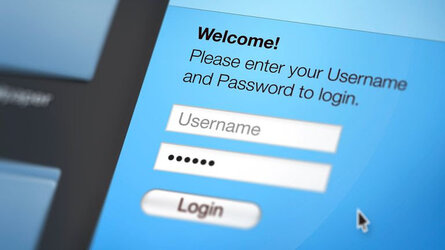Link | Archive

Common and easily guessed passwords like "admin" or "12345" are being banned in the UK as part of world-first laws to protect against cyber attacks.
As well as default passwords, if a user suggests a common password they will be prompted to change it on creation of a new account.
It comes as a home filled with smart devices could be exposed to more than 12,000 hacking attacks from across the world in a single week, with 2,684 attempts to guess weak passwords on five devices, according to an investigation by Which?
Password managing website NordPass found the most commonly used passwords in the UK last year were 123456 and, believe it or not, password.
The new measures come into force in the UK on Monday, making it the first country in the world to introduce the laws.
They are part of the Product Security and Telecommunications Infrastructure (PSTI) regime - designed to improve the UK's resilience from cyber attacks and ensure malign interference does not impact the wider UK and global economy.
Under the law, manufacturers of all internet-connected devices - from mobile phones, smart doorbells and even high-tech fridges - will be required to implement minimum security standards.
They will also have to publish contact details so bugs and issues can be reported and resolved and tell consumers the minimum time they can expect to receive important security updates.
"From today, consumers will have greater peace of mind that their smart devices are protected from cyber criminals... We are committed to making the UK the safest place in the world to be online and these new regulations mark a significant leap towards a more secure digital world."
According to recent figures, 99% of UK adults own at least one smart device and UK households own an average of nine connected devices.
'Admin' and '12345' banned from being used as passwords in UK crackdown on cyber attacks
From today, new laws in the UK aim to make it tougher for cyber attacks to succeed and increase consumer confidence in the security of the products they use and buy.

Common and easily guessed passwords like "admin" or "12345" are being banned in the UK as part of world-first laws to protect against cyber attacks.
As well as default passwords, if a user suggests a common password they will be prompted to change it on creation of a new account.
It comes as a home filled with smart devices could be exposed to more than 12,000 hacking attacks from across the world in a single week, with 2,684 attempts to guess weak passwords on five devices, according to an investigation by Which?
Password managing website NordPass found the most commonly used passwords in the UK last year were 123456 and, believe it or not, password.
The new measures come into force in the UK on Monday, making it the first country in the world to introduce the laws.
They are part of the Product Security and Telecommunications Infrastructure (PSTI) regime - designed to improve the UK's resilience from cyber attacks and ensure malign interference does not impact the wider UK and global economy.
Under the law, manufacturers of all internet-connected devices - from mobile phones, smart doorbells and even high-tech fridges - will be required to implement minimum security standards.
They will also have to publish contact details so bugs and issues can be reported and resolved and tell consumers the minimum time they can expect to receive important security updates.
UK'S 10 MOST COMMONLY USED PASSWORDS IN 2023
- 123456
- password
- qwerty
- liverpool
- 123456789
- arsenal
- 12345678
- 12345
- abc123
- chelsea
"From today, consumers will have greater peace of mind that their smart devices are protected from cyber criminals... We are committed to making the UK the safest place in the world to be online and these new regulations mark a significant leap towards a more secure digital world."
According to recent figures, 99% of UK adults own at least one smart device and UK households own an average of nine connected devices.